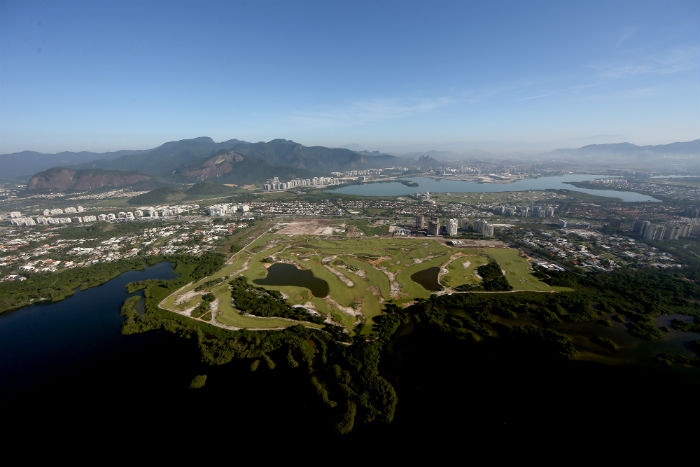Rapid expansion and globalization were just some of the words used to describe reasons why golf should be included as an Olympic sport back in 2009. The International Golf Federation (IGF) got their wish and golf was added as a sport for Rio 2016 as well as for the Olympics in Tokyo in 2020.
Seven years on and, as golf prepares to make its first appearance at the Olympics, we look at what has been done to make it last in the memories of viewers. The other contentious issue is how the IGF has chosen to show this so-called globalization of the sport on the world stage.
It is true that there has been an international expansion of the sport with the European Tour visiting no fewer than 27 different countries on its 2016 schedule. No longer is it confined to Europe, but reaches countries like Fiji, Thailand and Mauritius. On the other side of the pond the US PGA Tour very rarely ventures outside its borders, due to the fact that it has big money events going for it.
The European Tour’s global expansion has not brought the same sort of prize money available in the US, but it has opened golf to a different audience. Decades ago, who would have thought that players from Thailand, Austria, Sweden, Argentina, and South Korea would rank in the top 50 in the world.
Surely the global promotion of the sport requires an Olympic event that will stand out for years to come. Danny Chia, SSP Chawrasia, and Angelo Que are some of the players that may qualify, representing Malaysia, India, and the Phillippines respectively. On the surface this appears to be a good showcase for the sport, but digging below the surface results in disappointing findings that the IGF and Royal & Ancient Golf Club (R&A) should be embarrassed about.
The field for the tournament has been limited to 60 players competing in a four-day stroke play tournament. Sound familiar? For keen golf fans, all it seems to be is a glorified exhibition event that will have nowhere near the strength of field of the Nedbank Golf Challenge or Tiger Woods’ Hero World Challenge. And the format is seen every week on global tours, so how is the tournament really going to stand out?
Will we remember the tournament as a defining event in golfing history or could it be labelled as the Rio Open?
The simple fact is that the IGF (in all their exuberance to get golf included) have missed a great opportunity to showcase the sport. The format chosen is too repetitive and has basically put the Olympics up against golf’s four majors, a competition it will lose. In a recent Sports Illustrated anonymous tour pro survey 71 percent of the PGA and LPGA Tour players would rather win a major than an Olympic medal.
Surely a matchplay event, wherein immense pressure builds and upsets often occur, is a better way to go. A dropped shot at the 18th for Jordan Spieth in the final round in Rio will have no consequence if he has a four-shot lead. Some viewers will already have changed channels.
In terms of globalization, the matchplay format would provide a way to keep it close between bigger nations such as the United States and minnows such as India, Zimbabwe, and Thailand. Any golf fan would back Spieth to beat Brendon de Jonge over four rounds of stroke play, but think of what could happen over one round of matchplay. The fact is that there is no place to hide in matchplay from the first hole, you can’t ‘feel your way’ into the competition before making a move on Saturday.
The Olympics have had absurd competitors who have become the stuff of legends. The International Olympic Committee (IOC) has given wildcard entries in the past and there was once the story of Eric Moussambani, a swimmer from Equatorial Guinea who won the hearts of spectators at the Sydney Olympics in 2000 for completing the 100m freestyle in one minute 52 seconds.
Imagine a player from Vietnam competing against a seasoned PGA Tour campaigner. That country’s golfing fans could be treated to a dream match play victory for their local hero. Such fairytale stories are unlikely to rise form a 72-hole stroke play tournament.
I am sure all passionate golf fans will remember the Ryder Cup ‘Miracle at Medinah’ and such an occasion is precisely what the Olympic golf tournament should strive for. The mighty US coming unstuck will always make headlines.
Last year Thailand’s number one, Kiradech Aphibarnrat, won the match play event on the European Tour. If you cast your eye to this year’s WGC Dell Matchplay in the US, you will find that the semifinal comprised four players of differing nationalities. Rafa Cabrera Bello made it all the way to the semifinal before beating world number three Rory McIlroy to finish third. Applied to the Olympics that Spaniards feat would be equivalent to a low-key player claiming bronze over one of the tournament favourites.
If a team or individual match play event had been selected, who says the global powerhouses of golf would be chosen for the medals? It would certainly be memorable if a Thai player, for example, beat the field to win gold.
From a national perspective, think of the emotions if South Africa, through Branden Grace and Jaco van Zyl, battled against Jordan Spieth and Bubba Watson. That chance can only be created through format.
The IGF and R&A has missed a chance to embrace the globalization of the beautiful game of golf and my only hope is that they learn from whatever the experience is at Rio and make the necessary change come Tokyo 2020.








